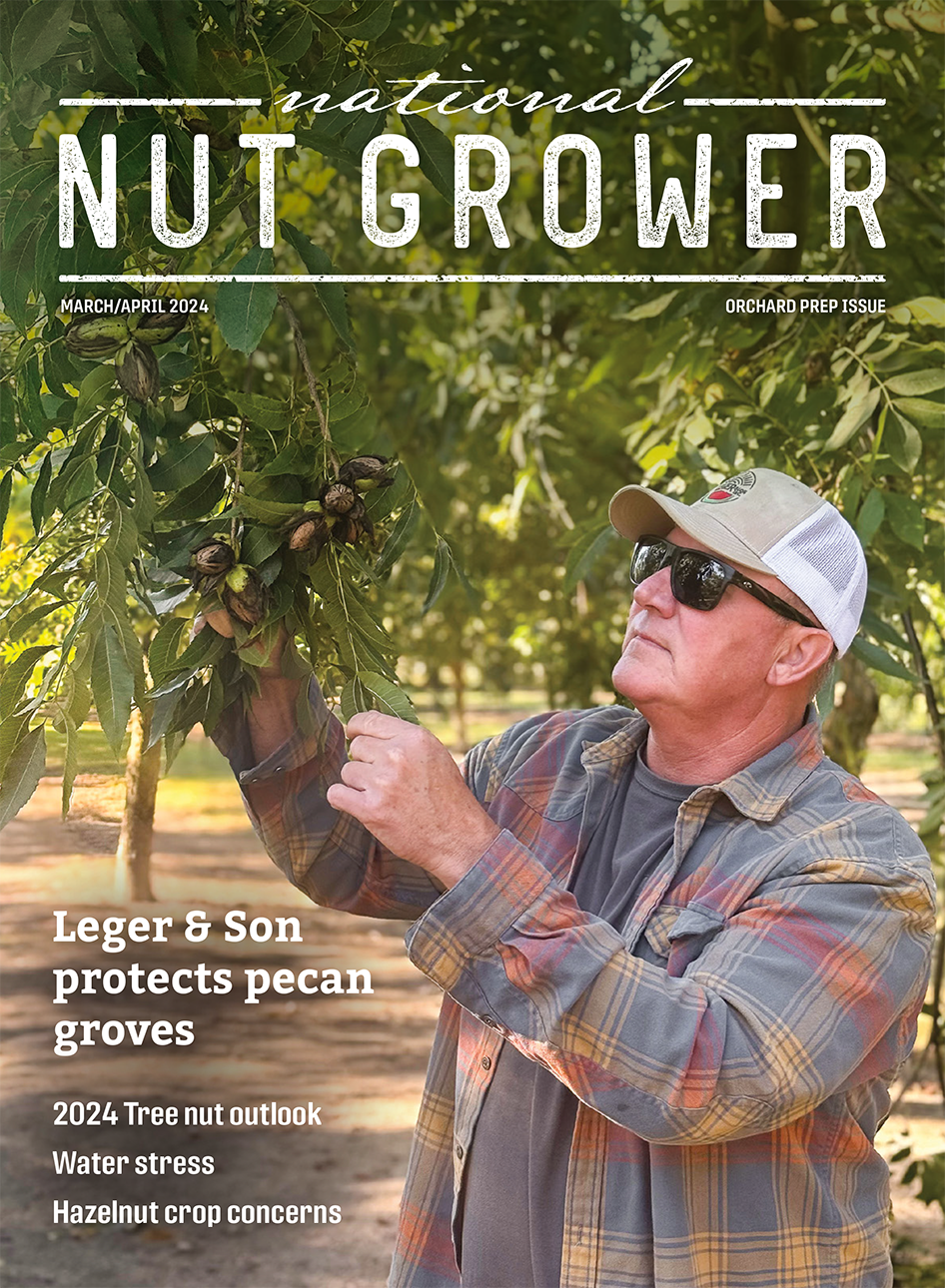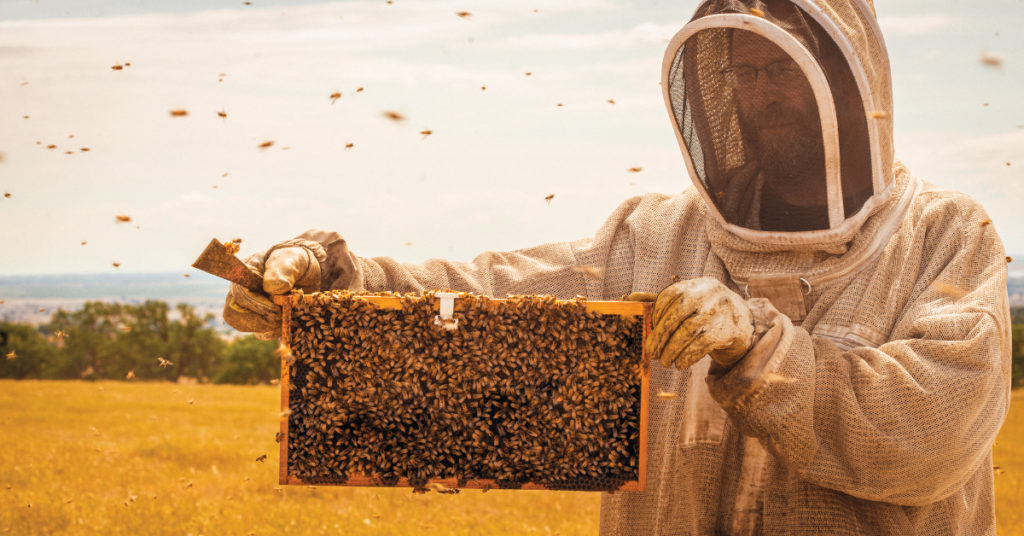
Precision pollination
BeeHero, a data-driven technology company founded in Israel in 2017, is on a mission to future-proof global food security by saving bees and promoting sustainable pollination practices. The vision for this company stems from its founders — Omer Davidi, CEO; Itai Kanot, COO and a second- generation commercial beekeeper; Yuval Regev, CTO; and Michal Roizman.
Headquartered in Fresno, California, with research and development centers around the globe, BeeHero utilizes advanced data analytics, artificial intelligence (AI) and Internet of Things (IoT) sensors to improve pollination management.
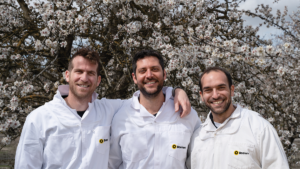
TECHNOLOGY AND SUSTAINABILITY
BeeHero helps address the urgent need for effective pollination in the face of declining bee populations. According to the USDA, 75% of the world’s flowering plants and about 35% of the world’s food crops depend on pollinators to produce. More than 3,500 species of native bees are known to assist in increasing crop yields, according to the USDA.
During the April 1, 2022-April 1, 2023 period, more than 60% of surveyed beekeepers reported a loss of 48.2%, according to the Bee Informed Partnership. The Bee Informed Partnership is a nonprofit organization that strives to improve honeybee colony health in the U.S. BeeHero’s Precision Pollination-as-a-Service (PPaaS) utilizes IoT sensors embedded in beehives and crop fields to monitor colony health and performance. The approach aims to ensure reliable pollination, supporting sustainable food production by enhancing crop yields and promoting biodiversity.
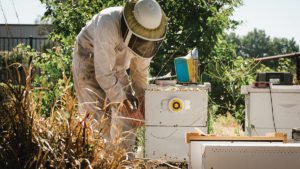
SCALABILITY AND REACH
BeeHero’s services are scalable and cater to commercial beekeepers and growers of varying sizes. Managing more than 200,000 commercial hives globally, BeeHero is a global provider of precision pollination services, collaborating with industry leaders in the U.S. and Australia. The company’s scalability ensures its efficiency across diverse agricultural landscapes.
“By leveraging cutting-edge technologies such as advanced data analytics, AI and cost-effective IoT sensors, BeeHero is revolutionizing the way pollination is managed and optimized in large-scale crop production to provide a win-win-win situation for growers, beekeepers and the planet,” Davidi said.
Davidi noted that the data the company has collected from growers indicates success not only in terms of crops but also for bee health. He said BeeHero processes and analyzes approximately 10 million samples daily.
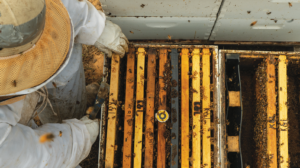
ACHIEVING RESULTS
BeeHero’s model is unique — it provides bees on a frame-per-acre basis. Traditional services have been based upon a hives-per-acre model.
“BeeHero’s analysis suggests a potential 30% increase in crop yields and improved bee health, and beekeepers using BeeHero’s technology have reported 33% fewer colony losses compared to the U.S. national average, equating to at least a quarter of a billion bees saved in the past year,” Davidi said.
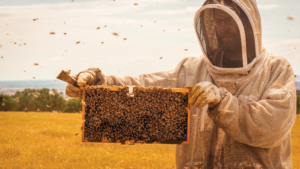
“The importance of effective pollination is crucial for almonds,” Davidi emphasized. “Numerous studies show a clear link between the quality of pollination and yield quality and quantity. Thus, the information derived from our sensors, and the actionable insights that are delivered to the growers in real time, can have a direct impact on the quality of their pollination efforts and the efficiency of the pollination force in their orchards.”
BeeHero’s “plug-and-play” IoT sensors transform commercial bee hives into an intelligence hub, and the sensors collect data within the hive such as: acoustic signature, temperature, humidity and more. Davidi shared that information gathered is transmitted to a gateway, which is installed on every pallet containing a group of hives, and the data is then sent to the cloud, where it is analyzed. He also shared this process enables “actionable, real-time insights” for growers and beekeepers, and enables “timely treatment to reduce mortality rates.”
“The figures from last year’s almond pollination season show a clear advantage to growers working with BeeHero,” Davidi said. “The average strength of BeeHero-managed colonies in 2023 was 40% higher than the industry average as reported by the USDA. In addition, colonies under BeeHero’s management that were tasked with pollinating almonds in California grew by an average of 23%, despite the unprecedented cold weather in the state.”
BeeHero also has the ability to order a specific number of bees that growers will need to pollinate a particular orchard based upon its acreage. Additionally, the company can place the hives where they are needed the most. Davidi noted that this precision “maximizes the yield quantity and quality.”
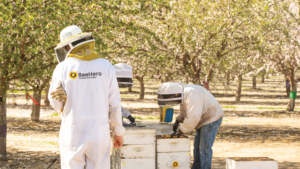
Currently, BeeHero’s primary market is almond growers, but it works with various growers and even agricultural producers, all with the goal of optimizing pollination of a variety of crops.
Starting in 2024, it will offer pollination solutions for apples, berries, avocados, sunflowers and other crops. The introduction of BeeHero PIP (Pollination Insights Platform) further extends its reach, providing real-time data for seed, row and specialty crops.
BeeHero’s model allows growers to achieve powerful pollination using the same or even fewer hives.
BeeHero’s offerings provide growers with “lower operational costs to the minimum necessary by reducing labor costs — including manual inspections, and efforts needed to replace dead colonies and revive ailing hives,” Dividi said.
INTEGRATION AND OUTLOOK
“BeeHero’s ability to integrate with existing systems enables farmers to access insights in their preferred way. This allows us to focus on leveraging this new layer of data to support precision pollination efforts and achieve better results,” Davidi said and noted that the company hopes to increase integration capabilities in the future.
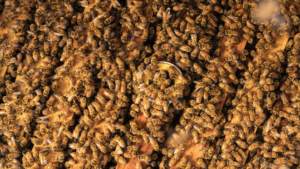
Looking ahead, Davidi said that BeeHero aims to expand geographically, technologically and in the variety of crops it addresses. Its newly released Pollination Insights Platform (PIP) is set to play a crucial role in providing real-time data to growers.
“We are also working to expand the adoption of our newly released PIP, which reports in-field activity by pollinators to growers, who can easily access the data and use it to effectively manage their pollination processes including tracking dates, placement of hives, pollination strength per crop type and more,” Davidi said. “PIP empowers growers with crucial knowledge about the actual bee activity in the field by understanding the rate at which bees visit crops, gauging the efficacy of pollination and identifying potential issues in the process.”
DATA IMPLICATIONS
BeeHero holds a large dataset of bee activity globally, and the company plans to collaborate further with various partners and international food agencies. The dataset holds enormous value for current and future research, and is critical to its underlying mission to support beekeepers and growers as well as the future of the global food supply, Davidi said.
“We also intend to deepen our collaboration with the USDA and international food agencies, as our unique dataset can yield enormous value to the research community and policymakers worldwide in the field of food security, biodiversity and pollinator safety,” he said.







